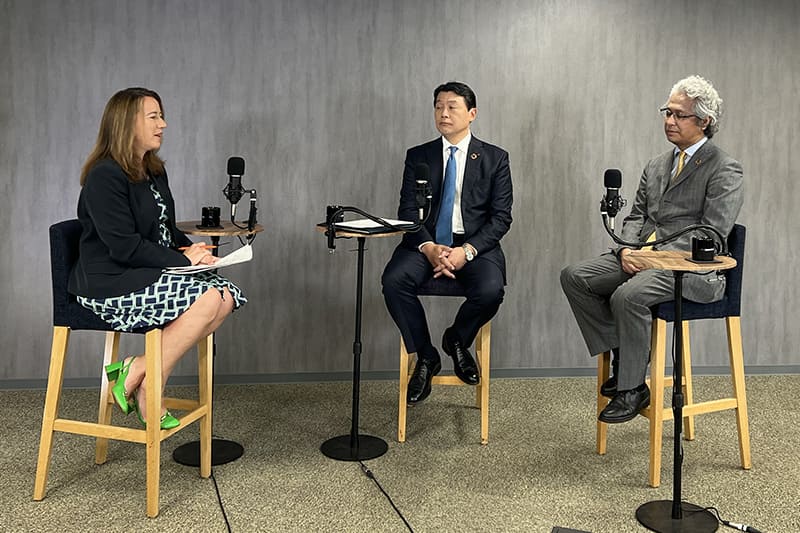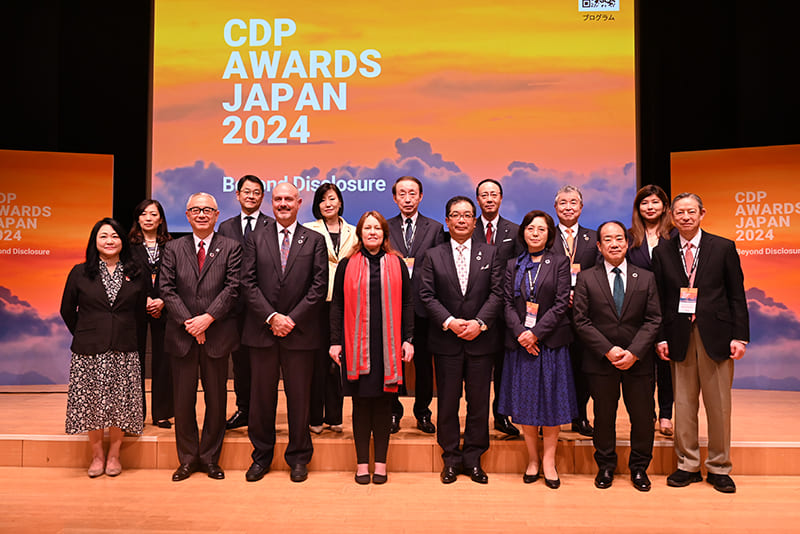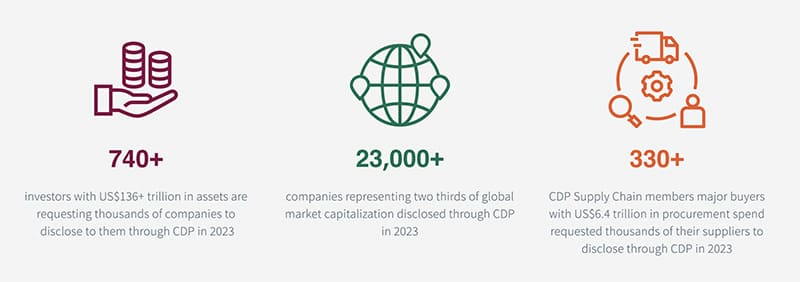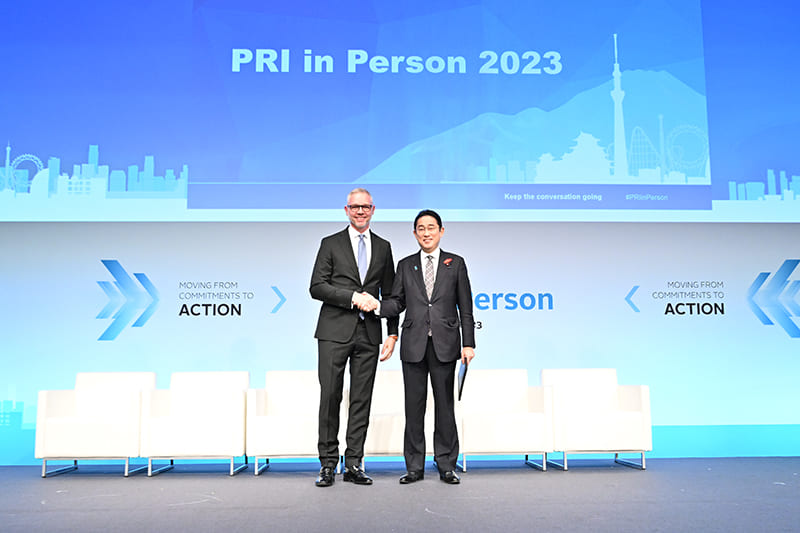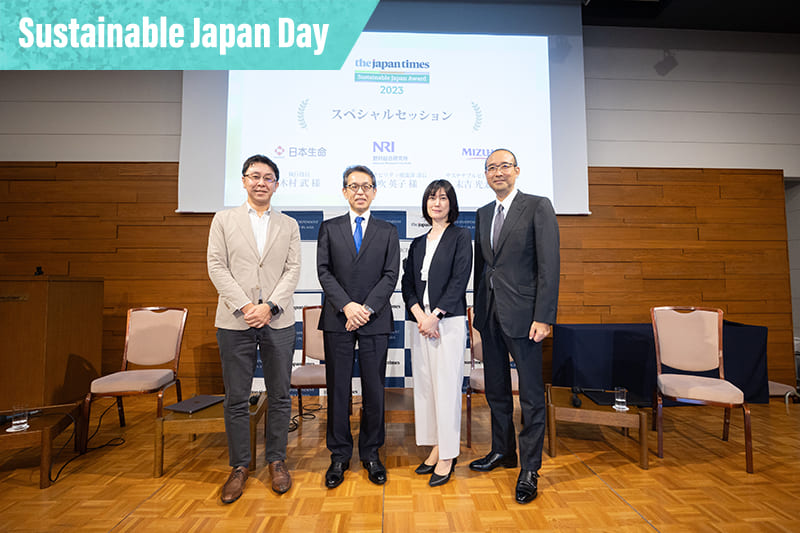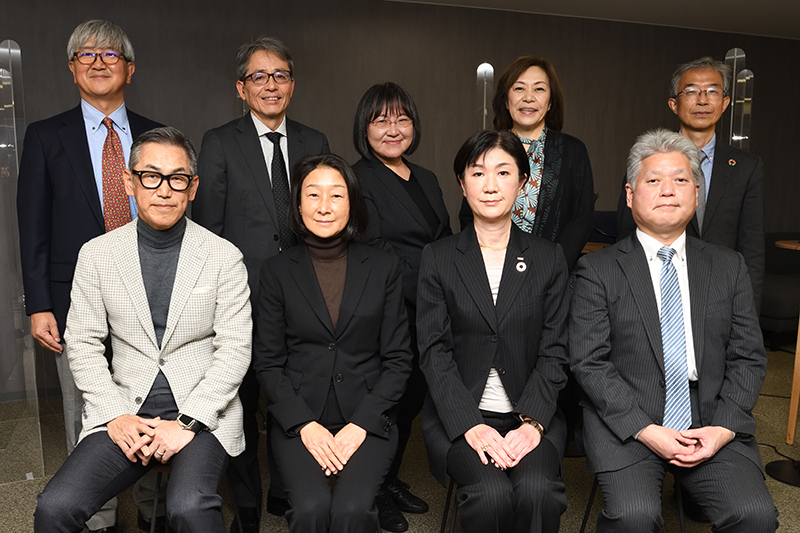December 01, 2019
Compelling need for adoption of ESG goals
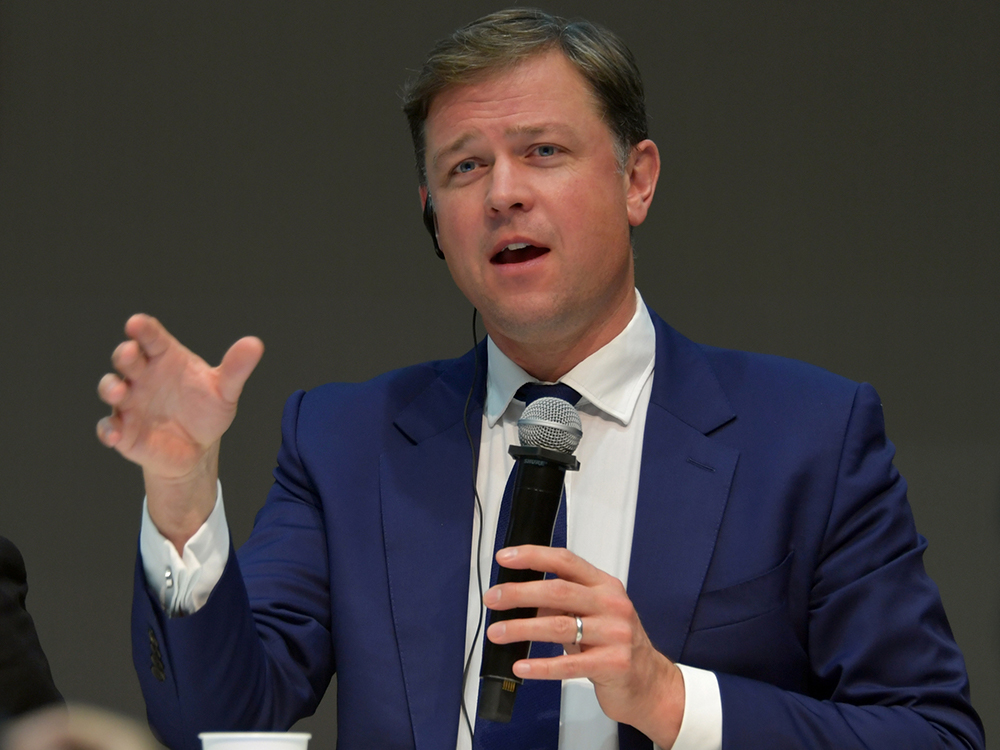
Intensifying pressure to limit global temperature increases and prevent ecological disaster is mounting and corporations and investors — including those in Japan — have an urgent role to play.
That was a key message at the CDP Forum on Decarbonizing Management — Vision to Action held in Tokyo on Nov. 19.
London-based nonprofit CDP runs a global disclosure system for investors, corporations and local and regional governments that helps manage their environmental impact. It co-hosted the event along with the Environment Ministry.
Paul Simpson, CDP’s CEO, outlined the stakes described last year by the Intergovernmental Panel on Climate Change, or IPCC — a United Nations body — if temperatures rise from the preindustrial era fail to be limited to 1.5 degrees Celsius rather than 2 degrees.
“The costs of that extra half degree are enormous,” Simpson said in a keynote speech opening the forum, citing the prospect of fish stocks devastated by the destruction of coral reefs and worsening arctic ice melt, among other potential catastrophes.
He added that achieving net-zero carbon emissions for the entire global economy by 2050 means such discharge must be cut in half over the next 10 years and then slashed by a further half in the subsequent two decades.
Simpson also referenced the growing preponderance and severity of weather-related disasters — including recent typhoons in Japan — and recent record-high global temperatures as warnings that action cannot wait.
“Now this is difficult for us because we tend to run our economies based on what happened last year,” he said. “And what we have to do is run our economies on what is going to happen in 10 years and 20 years and bring those costs and changes into our decisions now.”
Junko Nakagawa, president and CEO of Nomura Asset Management Co., said that awareness regarding the impact of climate change is increasing.
“I think there is a feeling among companies in our industry as well for taking concrete action toward realizing a decarbonized society,” Nakagawa, the first woman to head Nomura Asset Management, said in her speech.
She described how Nomura Asset Management is asking companies in which it invests to incorporate climate change responses and disclosure into management strategy, stressing the importance of engagement.
“Now we own stock in 2,400 Japanese companies and we have had 5,500 meetings with them,” Nakagawa said. “And we also had more than 300 meetings with the main focus on ESG,” she added, referring to environmental, social and governance issues. “I think you can see that is a substantial number.”
Nakagawa said that dialogue includes discussions on greenhouse gas emissions, medium-to-long-term key performance indicators and Task Force on Climate-related Financial Disclosures (TCFD).
She also noted divestment is a potential tool to urge companies to improve on climate change. “But if we completely divest, we will lose opportunities for dialogue. So we cannot ask for improvement. That is the difficulty.”
Simpson and Masaya Okuyama, director of the Climate Change Policy Division at the Environment Ministry, participated in a discussion moderated by prominent journalist Hiroko Kuniya that included questions on Japan’s response.
Simpson sees “a lot of progress,” praising disclosure by large companies, particularly in TCFD, and for setting science-based targets.
But regarding areas for improvement, he said, “Clearly, at the moment, not enough companies (are) committed to 1.5 (degrees) and we know that’s difficult.”
He also said that Japan lags in renewable energy, strongly urged no new reliance on coal and called for more disclosure by small and midsized companies, the lack of which is a problem he stressed is not unique to Japan.
“So perhaps there needs to be a better dialogue between business, investors and the government about what it would take,” he said, referring specifically to renewables.
Okuyama cited an “awareness gap” between teams in Japanese companies responsible for ESG and corporate social responsibility issues and management. Another concern he mentioned is that executives do not always see a compelling link between climate change risk in terms of a direct impact on their business.
“I think it is a big problem,” he said.
Environment Minister Shinjiro Koizumi also attended the event, sponsored by Toyota Motor Corp. and European testing, inspection, certification and risk management provider Socotec Group.

